7 Amazing Event Marketing Examples
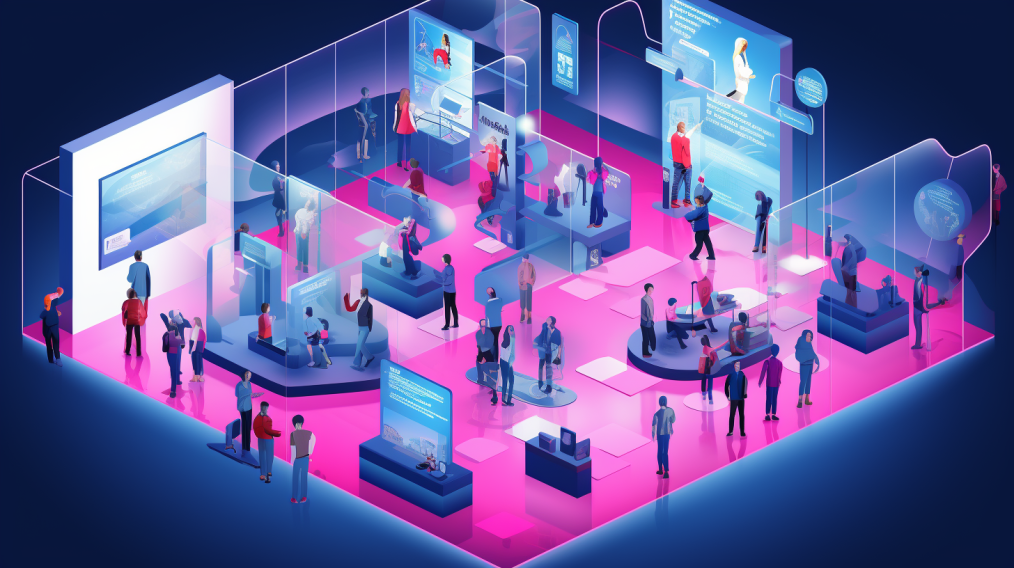
Does event marketing work? More than nine out of ten marketers believe that in-person events help them achieve their business goals, with event marketing examples across industries showcasing just how impactful this channel can be. With pandemic safety measures having normalized virtual event marketing and online event marketing, hosting and attending events has become more convenient, cost-effective, and accessible than ever.
Getting together like human beings to socialize, share experiences, and learn from each other — even in digital spaces — is a big part of what makes event marketing worth the effort. Whether it’s an experiential marketing campaign, a product launch, or a virtual event, event marketers understand the value of fostering engagement and creating memorable experiences. The most successful event marketing strategies also focus on increasing brand awareness and offering interactive opportunities for participation and collaboration with their target audience.
Read on as we reveal 7 amazing event marketing ideas that serve as shining examples of how to do it right. You’ll discover how to utilize branding, experiential events, and other event marketing tactics to create lasting impressions.
Event Marketing Examples
Here’s a list of some of the best event marketing examples to inspire your next campaign:
- Facebook IQ Live
- Twitter Beach
- Oracle Code One
- HubSpot INBOUND
- Intel at Computex
- South Summit
- Google Cloud Next
7 Examples of Amazing Event Marketing Ideas
Event marketing comes in many forms, from large-scale trade shows to virtual experiences. Here are 7 outstanding examples of event marketing campaigns:
1. Facebook IQ Live
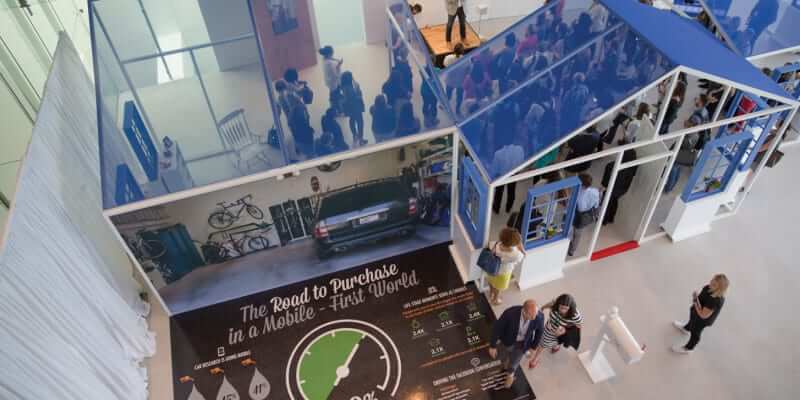
Facebook IQ Live is a textbook example of event marketing on how to combine experiential marketing and real-time engagement. The launch of Facebook IQ, an insights unit that helps marketers understand how people use social networks, was introduced to business leaders through an immersive event that blended branding with real-world interactions.
By creating a “neighborhood” inhabited by actors who demonstrated the potential of customer data, Facebook used experiential events to bring these insights to life. At the Instagram Café, for example, attendees could enjoy latte art while sampling case studies, providing both a memorable experience and practical marketing takeaways. This approach allowed Facebook to increase brand awareness and offer actionable insights into their audience, using event marketing strategies to create lasting impressions.
2. Twitter Beach
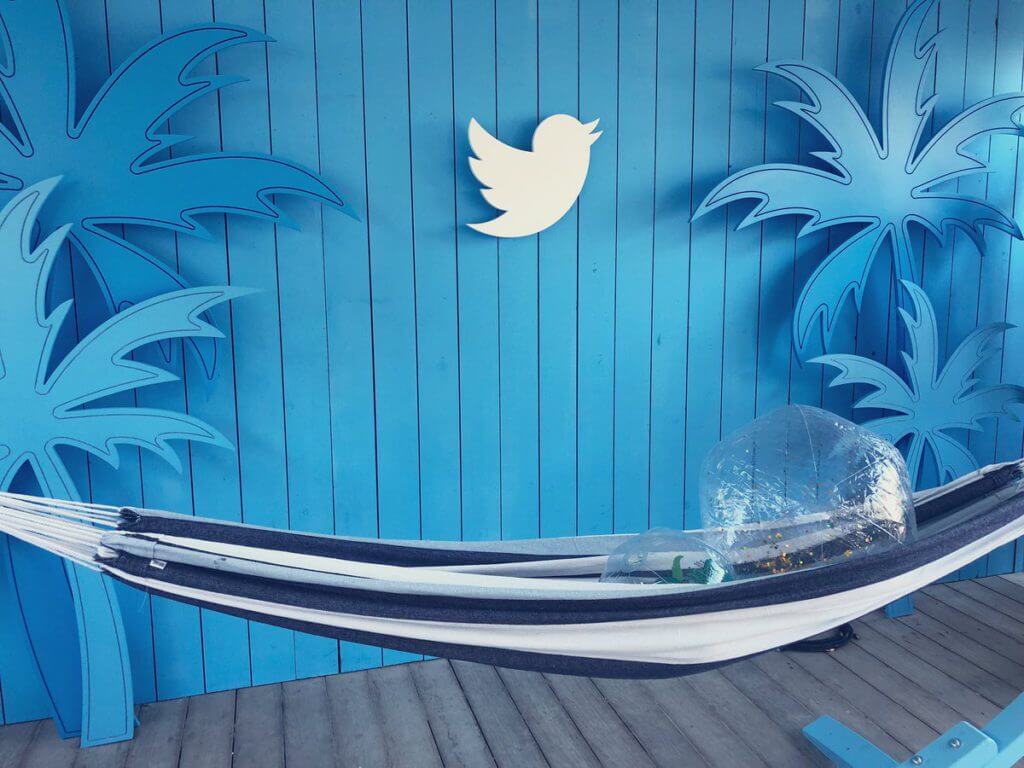
For their presence at the 2019 Cannes Lions International Festival of Creativity, Twitter created Twitter Beach, a prime example of blending a relaxed atmosphere with effective branding. Twitter Beach included fun music, media-themed programming, a photo booth, branded merchandise giveaways, and chill-out spaces to engage attendees.
While it offered sponsorship activation and networking opportunities, the event was also focused on event marketing tactics through its #StartWithThem initiative. Twitter leveraged its VIP terrace for one-on-one meetings, creating personalized participation opportunities with industry leaders and potential customers. This combination of relaxed experiences with meaningful marketing ensured that Twitter Beach was not only fun but also an effective event for both branding and business outreach.
3. Oracle Code One
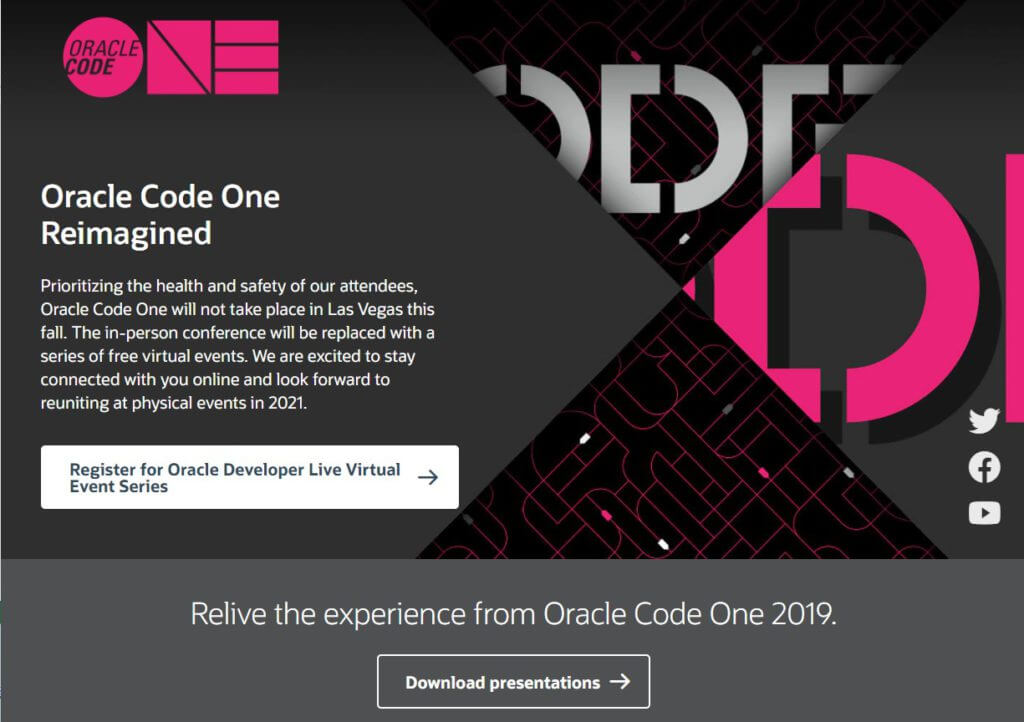
Oracle Code One is a stellar example of B2B event marketing done right. Formerly an in-person event for developers of Java, Python, and other technologies, Oracle transitioned the event into a fully virtual event format due to the pandemic.
This shift in their event marketing strategy maintained their commitment to keeping their target audience connected, offering free access to a variety of workshops, keynotes, and product demonstrations.
This successful pivot to an online event management model ensured that Oracle continued to provide value and engagement for developers and coders globally, making it one of the most successful online event marketing examples in recent years.
4. HubSpot INBOUND
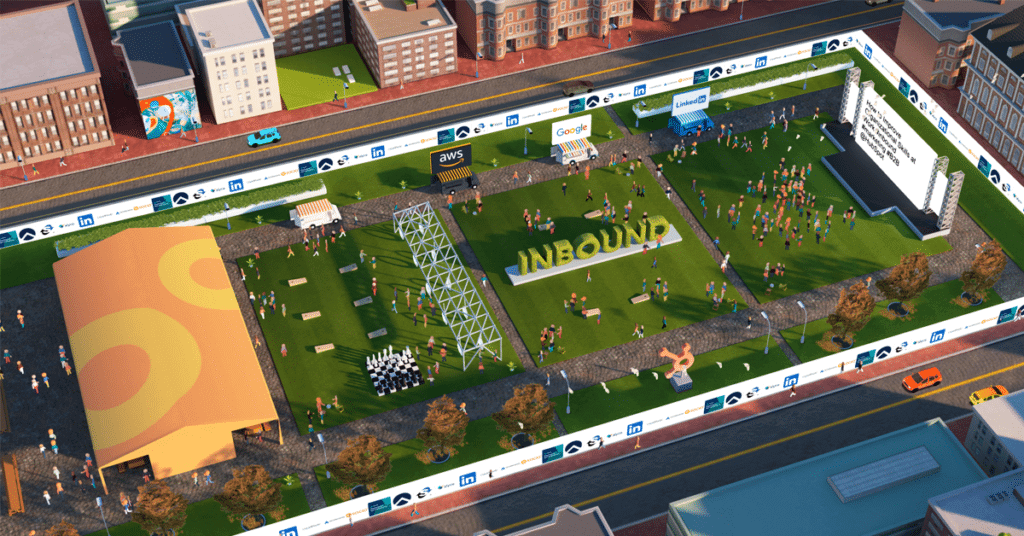
HubSpot INBOUND is a main example of how to let a recurring event grow into its own brand identity. Each year, INBOUND draws marketers, thought leaders, and industry professionals into immersive experiences filled with workshops, product launches, and sessions.
Even though the event had to transition from in-person to virtual due to the pandemic, HubSpot managed to create an engaging virtual event that included high-profile speakers such as Oprah, offering insights into the future of marketing technology. This experiential marketing example demonstrates how a well-executed event marketing strategy can maintain momentum and reach, even in a fully virtual format.
5. Intel at Computex
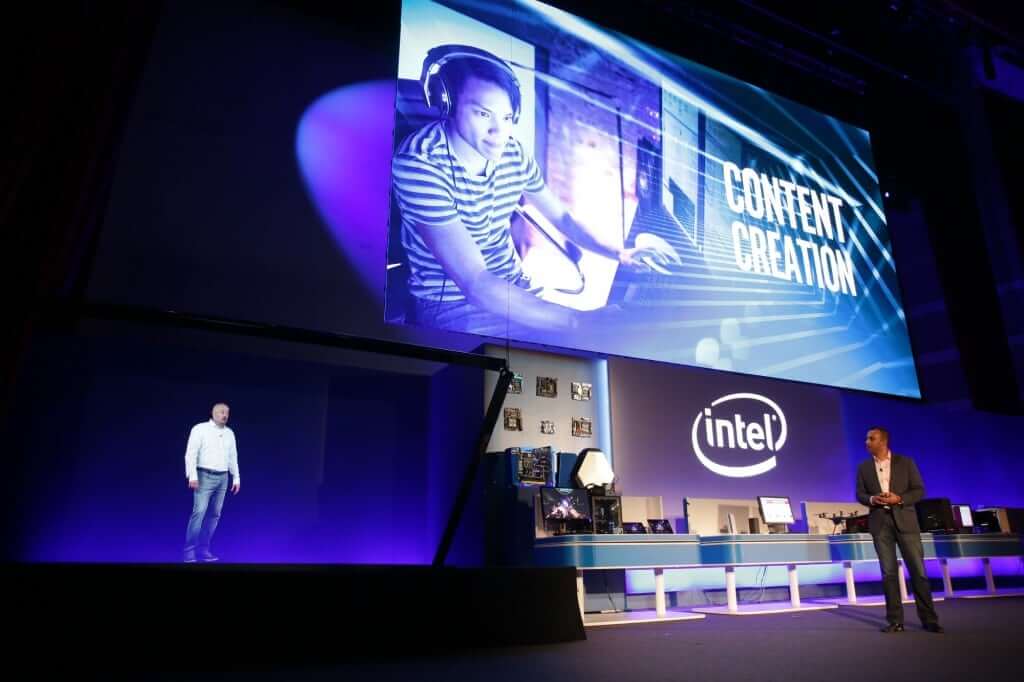
One way to make an impression at a large-scale event is to blow audiences away with new technologies. In 2016, Intel executive Gregory Bryant delivered a keynote speech in hologram form, highlighting Intel’s advanced processing power and product innovation.
This combination of experiential marketing and cutting-edge tech left a lasting impression on the audience. By incorporating tech such as holograms, augmented reality, or virtual reality, brands can create similar standout experiences at their events, enhancing participation and increasing brand awareness among potential customers.
6. South Summit
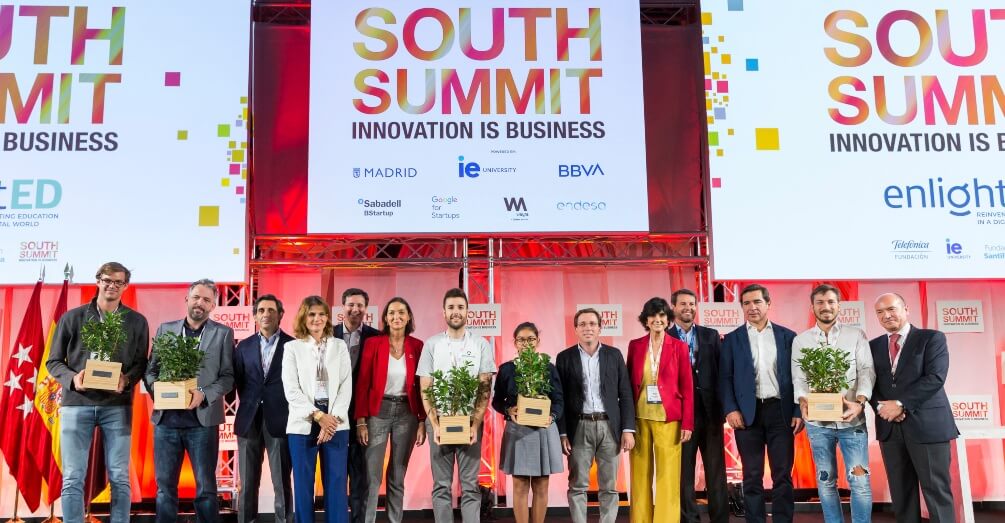
The attendees are a big part of any event’s success. One way to keep them engaged, entertained, and fully informed about the opportunities and activities going on around them is through a branded event app. This European startup conference created a branded app that allowed attendees to message each other, access event details, and submit real-time feedback.
By offering an interactive tool to guide attendees through a busy conference, South Summit ensured that participants had an enriched experience. Apps like these help attendees stay informed and connected, increasing engagement and making the event more impactful for everyone involved.
7. Google Cloud Next
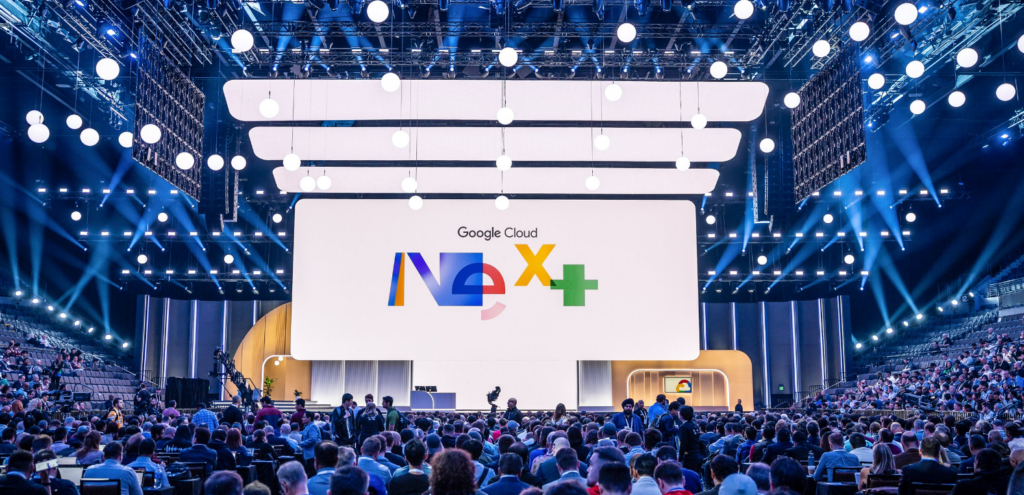
Google Cloud Next successfully blended both virtual and in-person experiences. Google used its cloud-based platform to host a series of workshops, product launches, and sessions, allowing participants from around the globe to engage with their content in real time.
This event highlights how a hybrid event marketing strategy can create extensive outreach opportunities, maximizing participation through both virtual and physical experiences. The event landing page was meticulously designed to ensure attendees could easily access key content, contributing to the event’s success as a powerful marketing strategy.
What Are Some Examples of B2B Events?
By definition, B2B events are geared toward companies and organizations within your industry, rather than targeting the general public. These events can be powerful tools for creating networking opportunities, building brand awareness, and fostering collaboration between businesses.
A well-run B2B event can solidify the personal relationships that many deals depend on, helping attendees form meaningful connections with potential customers and partners.
Statistics show that 74% of attendees at a B2B event walk away with a more positive view of the brands that offer them high-quality content and interactive experiences. To create an engaging event, you need to understand what your audience is looking for and choose an event format that suits your goals.
Common B2B event marketing examples include:
- Trade Show: Large-scale gatherings where vendors exhibit and demonstrate their products. Trade shows often span multiple days and offer opportunities for exhibitions and product demonstrations to generate interest among target audiences. Trade shows can be massive, days-long events, and some are held as roadshows that travel to different cities.
- User Conference: Designed for existing customers, user conferences provide tips, strategies, and feedback loops to enhance engagement and strengthen the sense of community.
- VIP Dinner: Offering an exclusive experience, VIP dinners are typically aimed at C-suite executives and high-level decision-makers. These events provide personalized outreach and build trust with top clients, prospects and partners.
- Lunch and Learn: More casual than a VIP dinner, these events let companies meet face-to-face with attendees, sharing their product or service while sparking discussions.
- Webinar: A virtual format for event marketing that presents information in a seminar style with interactive elements. Webinars offer convenience and accessibility, allowing businesses to connect with global audiences in real time.
B2B Event Marketing Best Practices
What makes a B2B event truly successful? While creating lasting memories is important, the key factor for most businesses is delivering measurable value and achieving a substantial ROI. To ensure success, follow these best practices for B2B event marketing:
- Assemble an Event Team: Designate clear roles and responsibilities for each team member, ensuring smooth execution of every aspect of the event.
- Set Clear Goals: Identify the objectives for your event and the metrics you will use to track success. Ensure your team’s efforts align with the overall goals to guarantee meaningful outcomes.
- Develop a Marketing Strategy: Promote your event in advance through various marketing channels such as social media, email campaigns, and your event landing page. These efforts should be designed to maximize engagement and reach your target audience effectively.
- Maximize Onsite Opportunities: During the event, prioritize holding one-on-one meetings with key prospects and providing memorable branded giveaways. Collect feedback and testimonials from existing customers to build credibility and drive future success.
- Follow-Up Post-Event: The post-event phase is critical. Ensure timely follow-ups, particularly with high-level executives, to keep the momentum going and solidify the relationships you’ve built during the event.
How to Decide Whom to Invite to Your B2B Event?
Choosing the right audience for your B2B event is crucial to its success. Focus on inviting individuals who match your target audience profile and have a high potential for engagement with your product or service. Use tools like Trendemon to personalize event landing pages and track website journeys in real-time, enabling you to identify visitors who might be interested in B2B events and serve them with targeted promotional content at just the right moment.